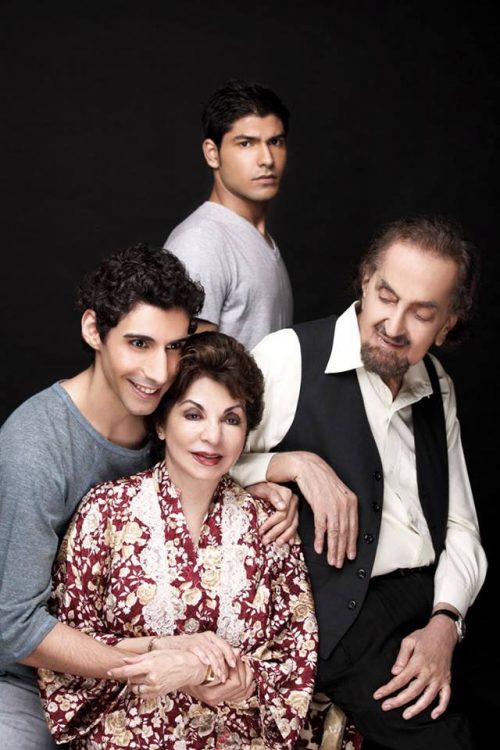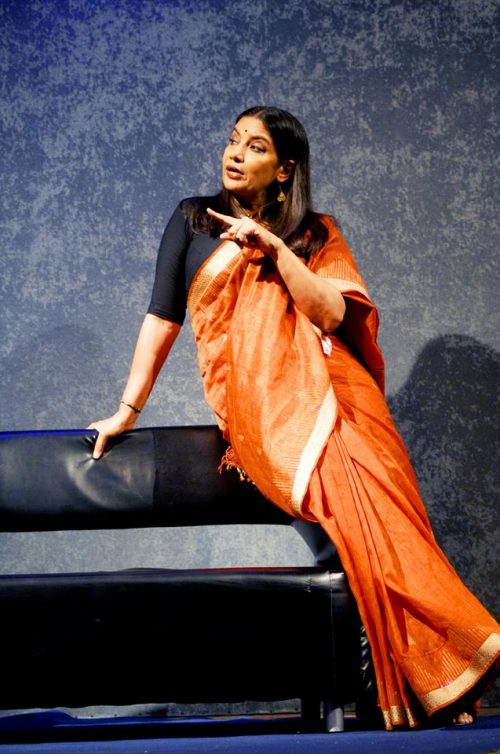MY VIEW: English Theatre Has a Loyal Fan Base in India. But Is It Easy to Make a Career in Theatre?
English theatre in India has a loyal following in cities. From Shakespeare’s plays to adaptations of British dramatists, these plays have succeeded in catering to the interests of a critical and well-informed audience.

Students in India are often introduced to English theatre in the form of Shakespeare’s plays. And it usually ends there. Indian dramatists like T P Kailasam, Habib Tanvir, Mahesh Dattani, Girish Karnad, Vijay Tendulkar, and Manjula Padmanabhan write in English, but the idea of English theatre is largely restricted to cities like Bangalore, Delhi, Mumbai, and Kolkata.
Even then, English theatre in India has a loyal following in cities. From Shakespeare’s plays to adaptations of British dramatists, these plays have succeeded in catering to the interests of a critical and well-informed audience.
Brilliant directors like Ebrahim Alkazi, Alyque Padamsee and Mahesh Dattani have enlivened the stage with classics and also by promoting the work of Indian-English playwrights.

Photo Source: Facebook
Bangalore Little Theatre (BLT), which was started over 50 years ago by English residents in the city, is the oldest surviving English language theatre group in the country. They have successfully produced over 200 English plays and launched several local playwrights exploring theatre in a post-colonial social context.
Esther Yates, who started the Department of Theatre Studies at Christ University three years ago, was the first director in Bengaluru to stage Andrew Lloyd Webber’s Jesus Christ Superstar in 1979.

Photo Source: Facebook
She strongly believes that one can pursue a full-time career in English theatre in India. “There is an industry in every aspect of theatre: lights, sound, sets, and the whole art of backstage management. But topping every reason is just one: audiences need to be, want to be, entertained. Opportunities for theatre were restricted in India till the last five years. Now there is scope in every major aspect in all major cities because the love of this fine art is being restored,” she says.
Aswin Sasi Varrier, 21, was part of a BLT production Tell Me The Name of A Flower, a translation of a Gujarati play by Madhu Rye. “The producer and the director of the play are dedicated to theatre. They’re passionate about their work and treat theatre with utmost sincerity and professionalism,” he says. “One of them is also a management professional who runs a company.” Many other groups like PlayPen, Theatre Lab, Yours Truly Theatre etc. also produce plays originally written in regional languages but adapted to English to reach a wider urban audience.
But for young enthusiasts who would like to take up theatre as a vocation, whether in English or a regional language, the prospects are bleak. “Out of the 23 ‘professional’ plays I’ve been part of, I remember getting paid for just two,” says Alistar Bennis, a 21-year-old performing-arts graduate who began his journey in theatre six years ago. “I would love to work only as a theatre artist but I haven’t figured out a way to sustain myself only through theatre.
“Too many actors are chasing too few jobs,” says Dr. John Bennet, deputy head of department of Dance, Drama and Performance Studies at Liverpool Hope University, who has been associated with theatre for the last four decades.“There is a debate raging at the moment about the cost of actor training and the fact that only students whose parents are wealthy can afford to train, which would be very bad for the profession in that the best actors may not be getting a chance because they cannot afford to.”
In India there are just a handful of institutions like the National School of Drama that teach theatre professionally. 
Photo Source: Facebook
Most Indian students look to foreign universities for graduate or undergraduate courses in theatre studies and its related areas. “I chose to go to New York Film Academy simply because it is one of the best places in the world to learn acting plus it is also close to Hollywood which gives me a fair chance to make it there, hopefully,” says Rajarshi Banerjee, 21, a theatre graduate who joined the Academy’s Masters programme in acting this fall.
With little government or other institutional support, English theatre has had to rely largely on the efforts of amateur theatre groups. Production costs in most cases are borne by producers who work 9-5 jobs and invest in their passion with their savings. “In my experience, I’ve noticed that there are way too many amateur theatre groups bringing down the reputation of Bengaluru theatre,” says Bennis who is currently trying to work as an actor, auditioning wherever he can and helping with production and casting in his free time.
India could take examples from the theatre cultures in the US and UK that have small yet loyal following despite the overwhelming television and movie culture. How come? Dr. Stan Denman, director of Baylor Theatre Abroad programme at Baylor University in Waco, Texas says, “The question is a bit like asking, ‘With recordings, why would anyone want to go to a concert and hear live music performed?’ It’s the immediacy of theatre that keeps people coming back and seeking that human connection. In this way, theatre is far more akin to sporting events and religious services than to film or television.”
Like this story? Or have something to share? Write to us: [email protected], or connect with us on Facebook and Twitter (@thebetterindia).
If you found our stories insightful, informative, or even just enjoyable, we invite you to consider making a voluntary payment to support the work we do at The Better India. Your contribution helps us continue producing quality content that educates, inspires, and drives positive change.
Choose one of the payment options below for your contribution-
By paying for the stories you value, you directly contribute to sustaining our efforts focused on making a difference in the world. Together, let's ensure that impactful stories continue to be told and shared, enriching lives and communities alike.
Thank you for your support. Here are some frequently asked questions you might find helpful to know why you are contributing?


This story made me
-
97
-
121
-
89
-
167














